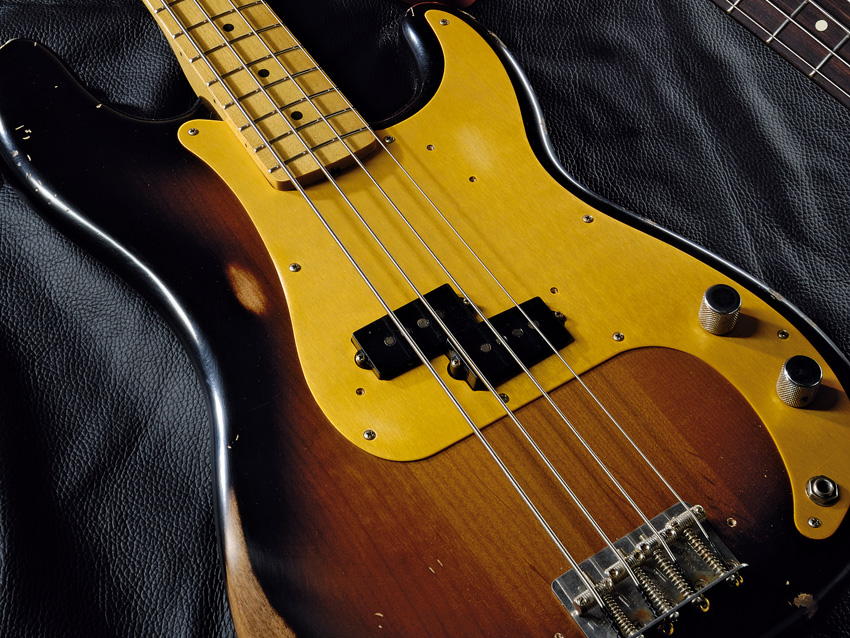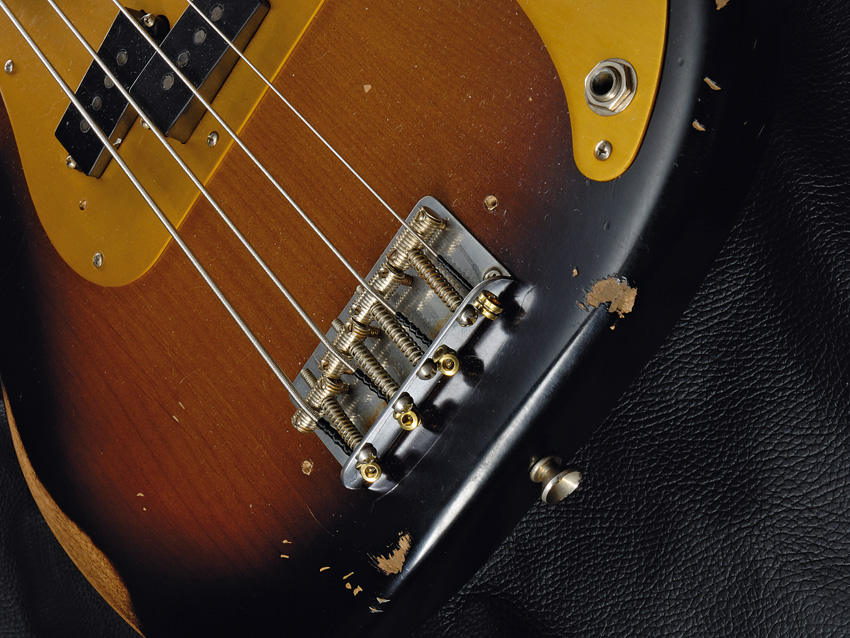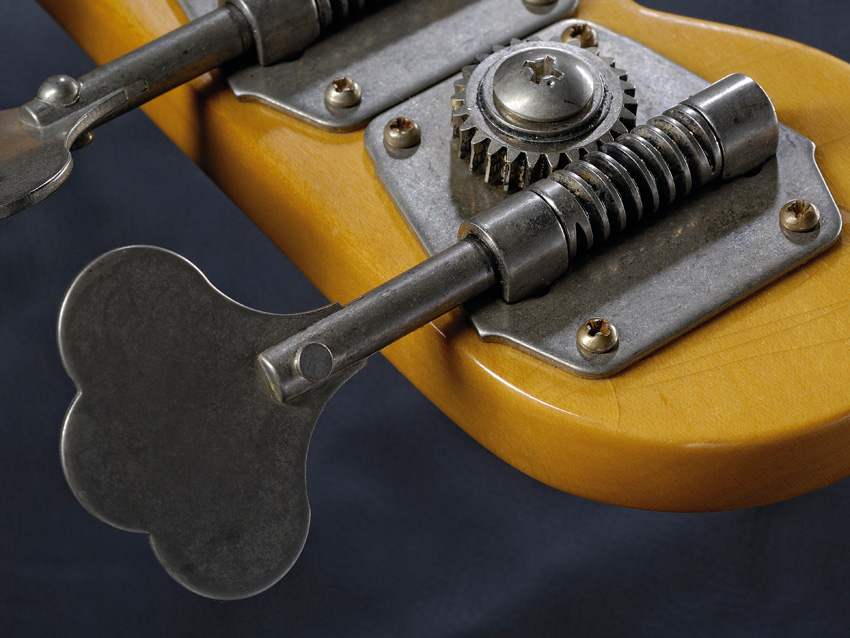MusicRadar Verdict
If you lust after a well-used vintage but simply can't afford it, the Road Worns are the answer. And trust us, they sound just as good as they look.
Pros
- +
The look, feel and sounds of an old friend.
Cons
- -
Not every one will be prepared to pay extra for the ageing.
MusicRadar's got your back

Fender Road Worn '50s Precision Bass

Fender Road Worn '50s Precision Bass

Fender Road Worn '50s Precision Bass
The care and attention paid to the recently reviewed Road Worn guitars from Fender was mightily impressive, and left bassists keen to see how Precision and Jazz versions might turn out. Our wait is over.
The Road Worn series basses are not presented as faithful reproductions of classic models, more a combination of some of the favoured elements that were around during their specified production eras. Just four models are available: two Precisions and two Jazz basses in two colours apiece.
Nitrocellulose 'lacquer' is used on both bodies and necks, but it's interesting that Fender has chosen a fairly matt body finish - most of the genuinely old and bruised basses that we've seen (and owned) still retain a gloss to the remaining finish.
"The bass feels like an old trusty partner after just hours of playing."
Mind you, over time this finish will burnish up to a soft gloss. That aside, these are cleverly aged and even with close scrutiny the effect is very convincing. The Precision features an anodised scratchplate, a one-piece maple neck and a two-tone sunburst finish. There's also a Fiesta red as the solid colour option for the P-bass.
'50s Precision
The Precision was originally built for accurate intonation, good balance, great sound delivery and the ability to withstand the punishment of touring. That's still true today and you can now own a bass that looks and feels like it was built half a century ago.
Our two-tone sunburst review model is a particularly elegant beast, and it's ready to take whatever you throw at it. With the one-piece maple neck and skunk stripe, reverse-action tuners and aged parts it smells of the fifties' models.
It feels comfortable, but even hardened players will notice the amount of wood in the neck. The mass is good for sustain, of course.
Want all the hottest music and gear news, reviews, deals, features and more, direct to your inbox? Sign up here.
Sounds
While Road Worn is primarily about the look and feel, Fender has definitely not skimped on the electronics for these guitars either - the Precision is well-equipped with quality components.
There's nothing subtle about the circuitry, of course, but for sheer power and full-on delivery it's hard to beat a P-bass. The split-coil pickup is the heart of the sound, and being made in two halves it gives you the ability to finely adjust the proximity of the dual polepieces to each string for both even string output and maximum performance.
Circuit-wise it couldn't be much simpler, with just volume and tone controls. But it's precisely this that allows the full potential of the pickup to be unleashed without inhibition.
The tone control offers just enough variation to add warmth or note clarity, but it totally lacks any extremes at either end so the sound can never become booming or brittle.
The fact that it's a passive circuit means there's also a degree of interaction between the controls, so fussier players will be able to delicately adjust the volume to squeeze a little more tonal variety out of it.
But basically this is as pure as you can get and offers as full-on a delivery as any passive bass in the market. It's loud, it's proud and has the benefit of a superb woody quality.
No wonder the Precision is the benchmark bass from which all others are measured - this is a particularly fine example of just how good that sound can be.
Whether it's worth paying nearly twice as much to get a beaten-up-looking nitro-finished instrument, rather than a brand spanking new one, is open to debate. However, it's a pity that once again Fender doesn't provide the cover plates and thumb-rest that were included with the original designs, even though the screw holes are all here!
All we can say is despite its infancy the illusion is dramatic and effective - the bass feels like an old trusty partner after just hours of playing.
Guitarist is the longest established UK guitar magazine, offering gear reviews, artist interviews, techniques lessons and loads more, in print, on tablet and on smartphones
Digital: http://bit.ly/GuitaristiOS
If you love guitars, you'll love Guitarist. Find us in print, on Newsstand for iPad, iPhone and other digital readers
